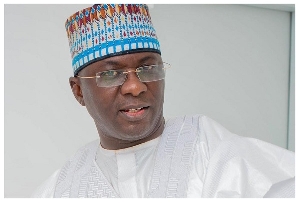 Mohammed Amin Adam is the new Minister of Finance
Mohammed Amin Adam is the new Minister of Finance
The removal of Ghana’s Finance Minister Ken Ofori-Atta and his replacement with Mohammed Amin Adam is purported to have sparked caution among international investors, who fear potential delays in the restructuring of the country’s overseas debt ahead of December’s national elections.
While the change in leadership isn’t expected to completely derail negotiations over the debt restructuring, it has introduced fresh uncertainty, causing the prices of Ghana’s eurobonds to slip.
Ghana is seeking relief on approximately $13 billion owed to private creditors holding eurobonds, a process that Ofori-Atta had been overseeing.
Thys Louw, portfolio manager at asset manager Ninety One, noted the risk of delay as the new finance minister familiarizes himself with the situation but expressed confidence that a deal could still be reached before the elections. He emphasized that the parameters for a deal are well understood by both sides.
Ghana’s bond prices fell in response to the news, reflecting ongoing challenges faced by the country in its recovery from its worst economic crisis in a generation.
Despite securing a $3 billion loan program with the International Monetary Fund (IMF) and restructuring $5.4 billion of debt with official creditors, such as China and France, the road ahead remains arduous.
While some bondholders prefer the use of state-contingent debt instruments, Ghana aims for a simple debt restructuring. However, feedback from investors has been mixed, indicating that further work is needed.
The removal of Ofori-Atta has raised concerns about potential fiscal consolidation slippages in an election year, but IMF support provides some reassurance.
The IMF spokesperson reiterated their commitment to assisting Ghana in achieving its objectives, signaling continued cooperation with the new finance minister.